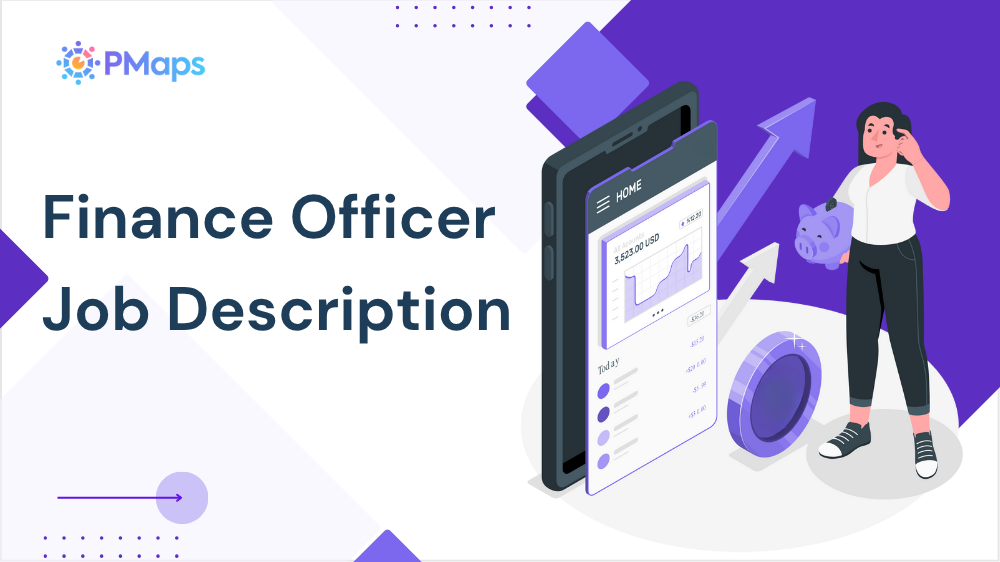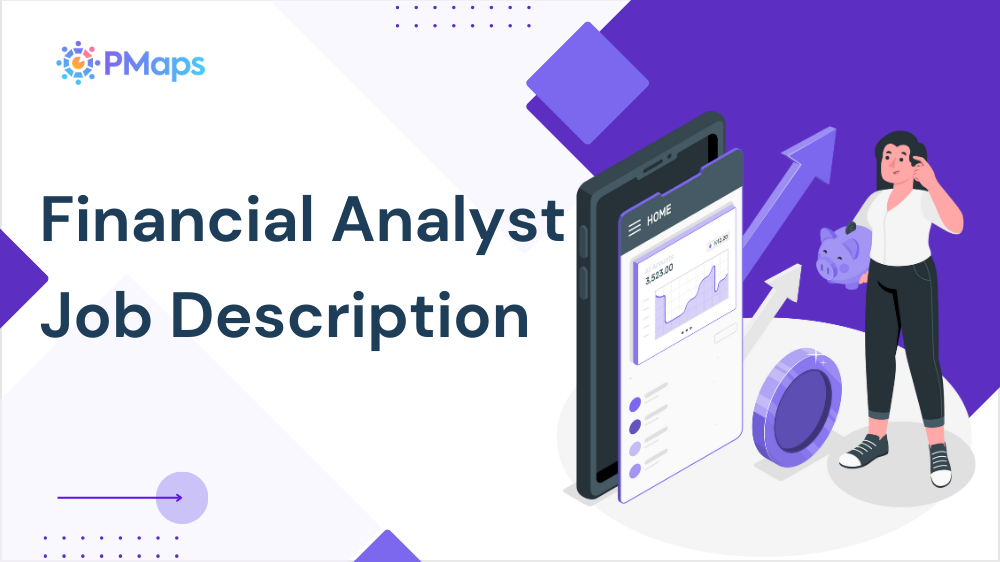
Behind every financially sound organization is a finance officer who turns numbers into strategy. This finance officer job description goes beyond routine accounting, it defines a role central to compliance, forecasting, and fiscal leadership.
Ideal for structured thinkers with an eye for risk and value, this accounting and finance officer job description is designed to attract candidates who ensure every financial decision aligns with long-term business goals. Whether managing budget allocations or contributing to board-level reporting, the finance officer ensures every decimal drives the company forward.
Finance Officer Roles & Responsibilities
A well-defined list of finance officer duties and responsibilities helps distinguish operational execution from strategic oversight. This role bridges everyday financial activities with long-term fiscal planning. Whether supporting audits, managing budgets, or producing key reports, the finance officer ensures accountability, transparency, and alignment with organizational goals.
- Financial Oversight: Monitor daily financial transactions, validate entries, and ensure regulatory alignment.
- Budget Management: Prepare, allocate, and track departmental budgets in coordination with leadership.
- Forecasting & Reporting: Generate monthly, quarterly, and annual financial statements to support informed decision-making.
- Audit Readiness: Maintain audit trails and documentation for both internal and external audits.
- Cost Analysis: Evaluate expenditures to identify savings, mitigate risks, and improve profitability.
- Compliance Control: Ensure adherence to tax laws, corporate policies, and financial governance standards.
- Vendor & Stakeholder Communication: Coordinate payments, resolve discrepancies, and maintain professional relationships.
- Team Collaboration: Work cross-functionally with procurement, operations, and HR to align financial plans.
Looking for fiscal focus? Try the Finance Officer Test now.

Objective of the Finance Officer Role
The purpose of this role goes beyond transactional accuracy. A well-defined finance officer job description must emphasize how this position contributes to business foresight, financial health, and operational resilience. The objective is to ensure compliance while empowering smarter financial decision-making across the organization.
- Strengthen financial reporting for strategic planning and executive-level visibility.
- Maintain fiscal discipline through accurate budgeting and cost control.
- Ensure legal and regulatory compliance in all financial operations.
- Create transparency and readiness for both internal and statutory audits.
- Contribute to profitability through data-driven financial assessments and forecasts.
Qualification and Skill Requirements for Finance Officers
To meet the demands of a modern finance officer job description, candidates must offer a blend of financial acumen, regulatory awareness, and system fluency. These qualifications help ensure consistency in performance and integrity in reporting.
- Educational Background: Bachelor’s degree in Finance, Accounting, Economics, or a related field; CPA or MBA is a plus.
- Experience: 3–5 years in financial operations, reporting, or budget management roles.
- Analytical Skills: Ability to interpret financial data, spot trends, and provide actionable insights.
- Regulatory Knowledge: Understanding of tax laws, compliance standards, and audit requirements.
- Tech Proficiency: Experience with ERP systems (e.g., SAP, Oracle), Excel modeling, and financial dashboards.
- Detail Orientation: High accuracy in documentation, reconciliations, and report generation.
- Communication: Ability to present complex data clearly to non-financial stakeholders.
- Ethics & Confidentiality: Trusted to handle sensitive financial information and maintain internal controls.
Don't waste questions—use targeted Finance Officer Interview Questions.
Perks and Benefits of the Finance Officer Role
For finance professionals who value precision, compliance, and influence, this role offers more than routine execution. A strong finance officer job description should reflect the real advantages of working in a finance-first culture, where structure meets strategic exposure.
- Strategic Exposure: Work closely with leadership on budgeting, forecasting, and board reporting.
- Professional Development: Access to certifications in IFRS, GAAP, or advanced Excel analytics.
- Defined Growth Path: Progression opportunities toward Senior Officer or Chief Finance Officer roles.
- Process Ownership: Lead improvements in compliance workflows, audit readiness, and cost controls.
- Finance-Driven Culture: Join a team where data integrity and reporting accuracy are non-negotiable.
- Flexible Work Formats: Predictable working hours and optional hybrid finance team models.
Tips for Employers to Craft an Effective Finance Officer JD
A standout finance officer job description does more than fill a vacancy—it positions your organization as a destination for finance professionals who prioritize control, compliance, and contribution. These tips help refine the role to attract serious, high-fit candidates:
- Define Financial Scope: Be clear on whether the role includes forecasting, reporting, or just transactional oversight.
- Separate from CFO-Level Jargon: Avoid blending chief finance officer roles and responsibilities unless hiring for an executive seat.
- Emphasize Systems Used: Mention specific ERP tools (e.g., SAP, NetSuite) to attract tech-ready applicants.
- Highlight Compliance Expectations: Outline responsibilities in tax filings, audit trails, and internal financial governance.
- Show Organizational Impact: Explain how accurate reporting supports strategic growth and investor confidence.
- Limit Overlap with Bookkeeping: Position this as a mid-tier financial decision-support role, not a purely clerical one.






